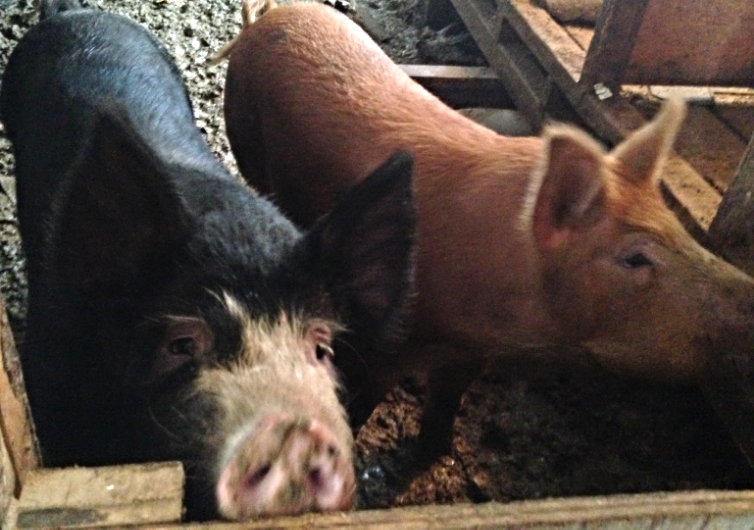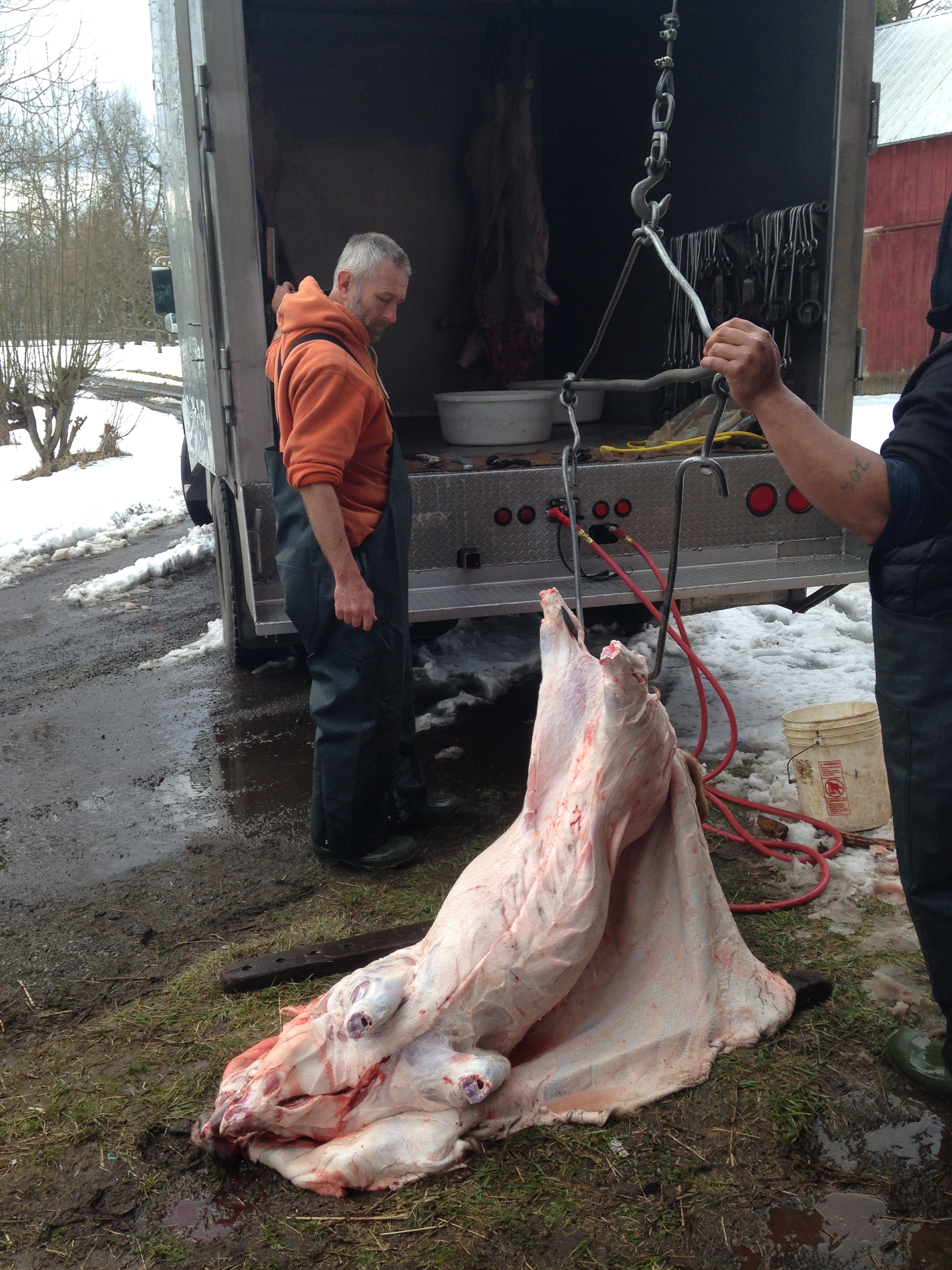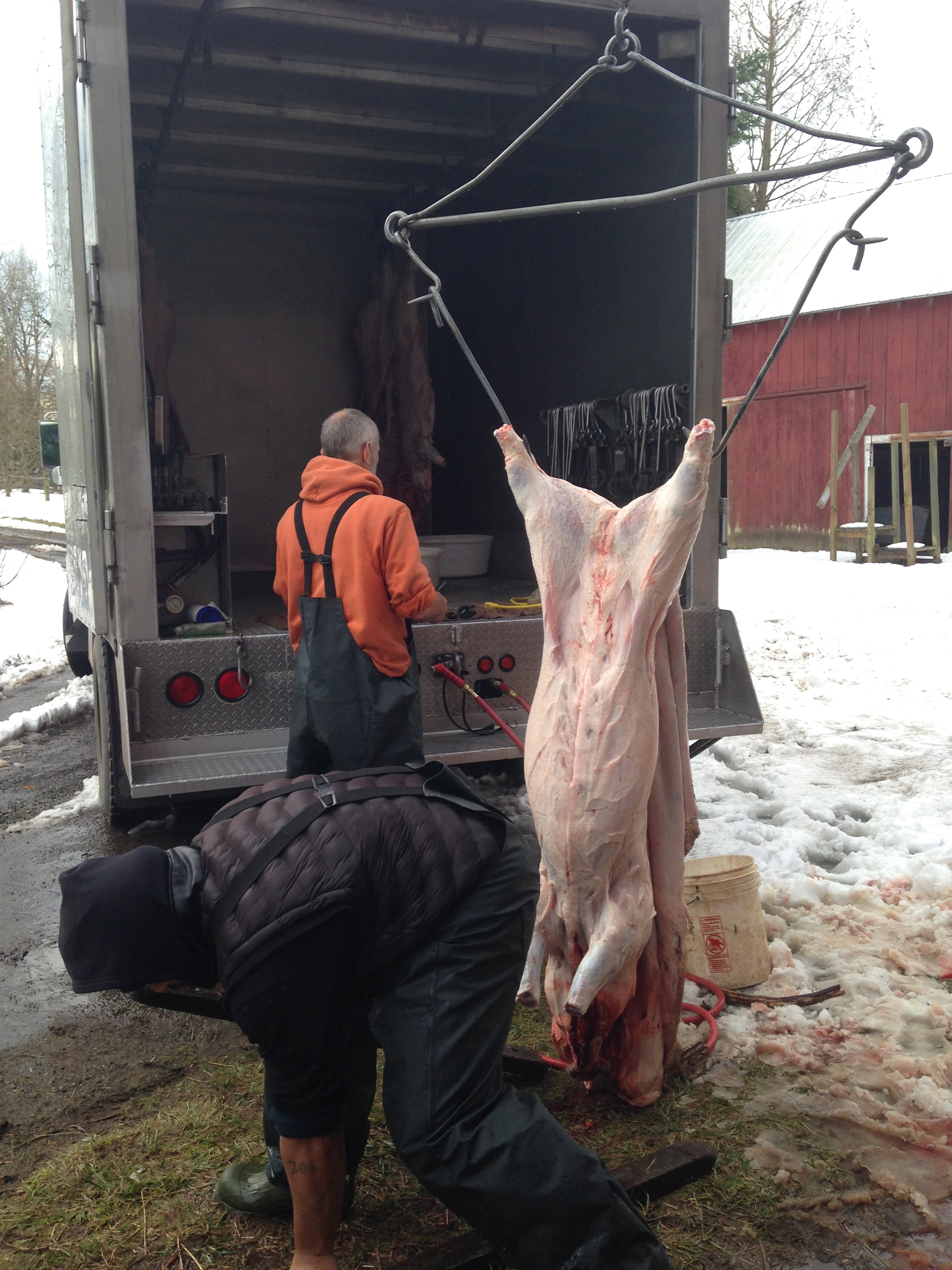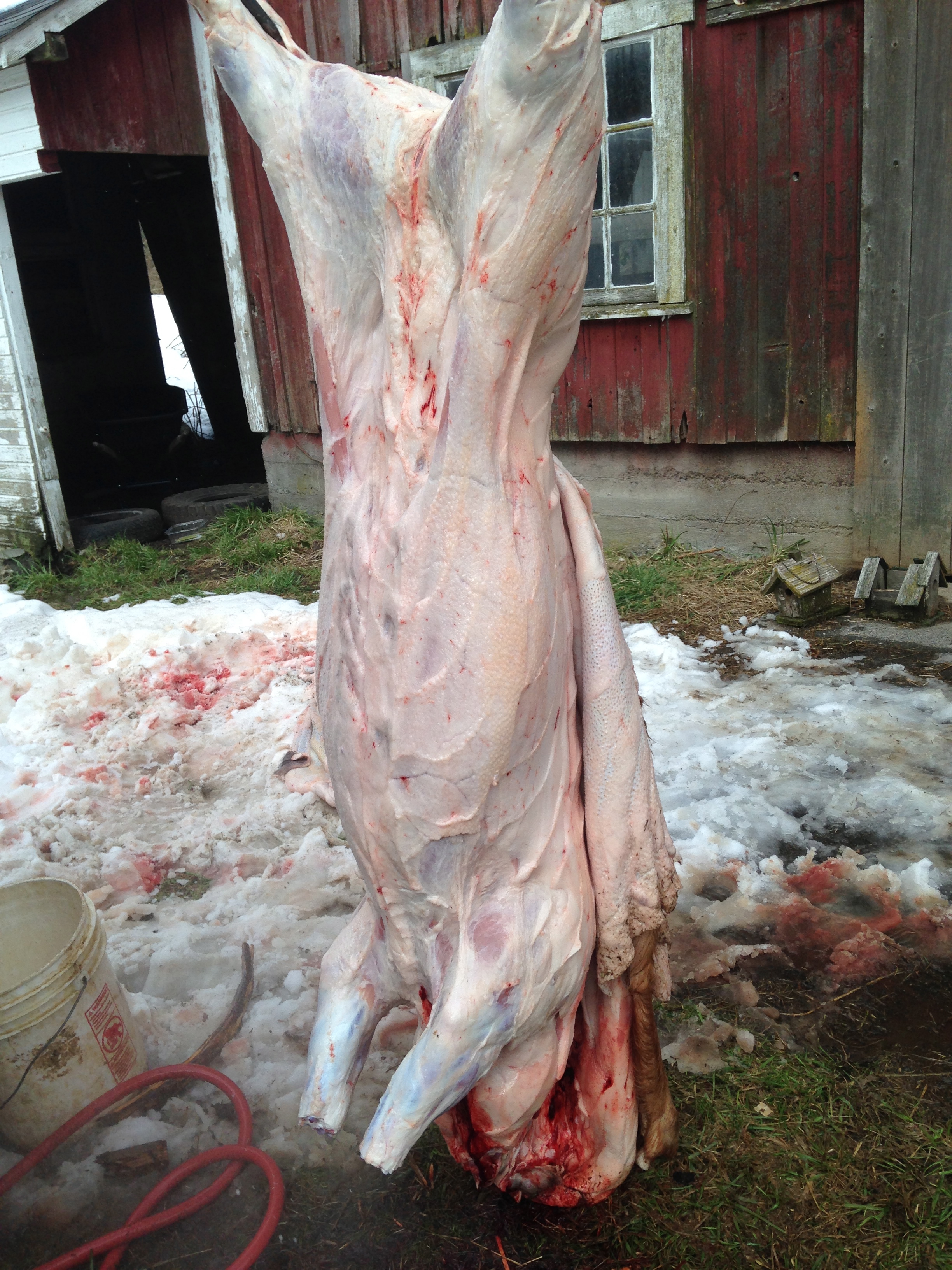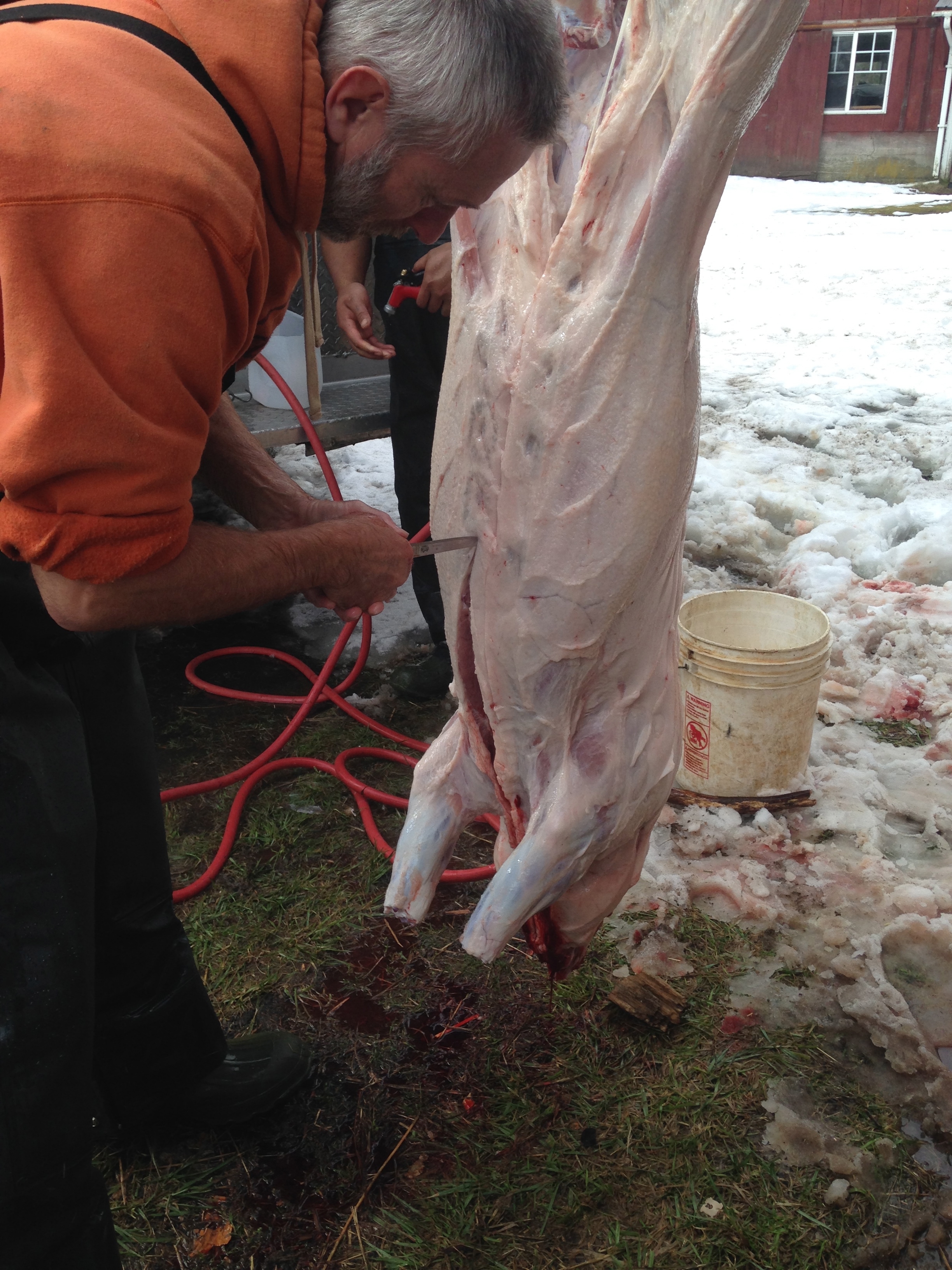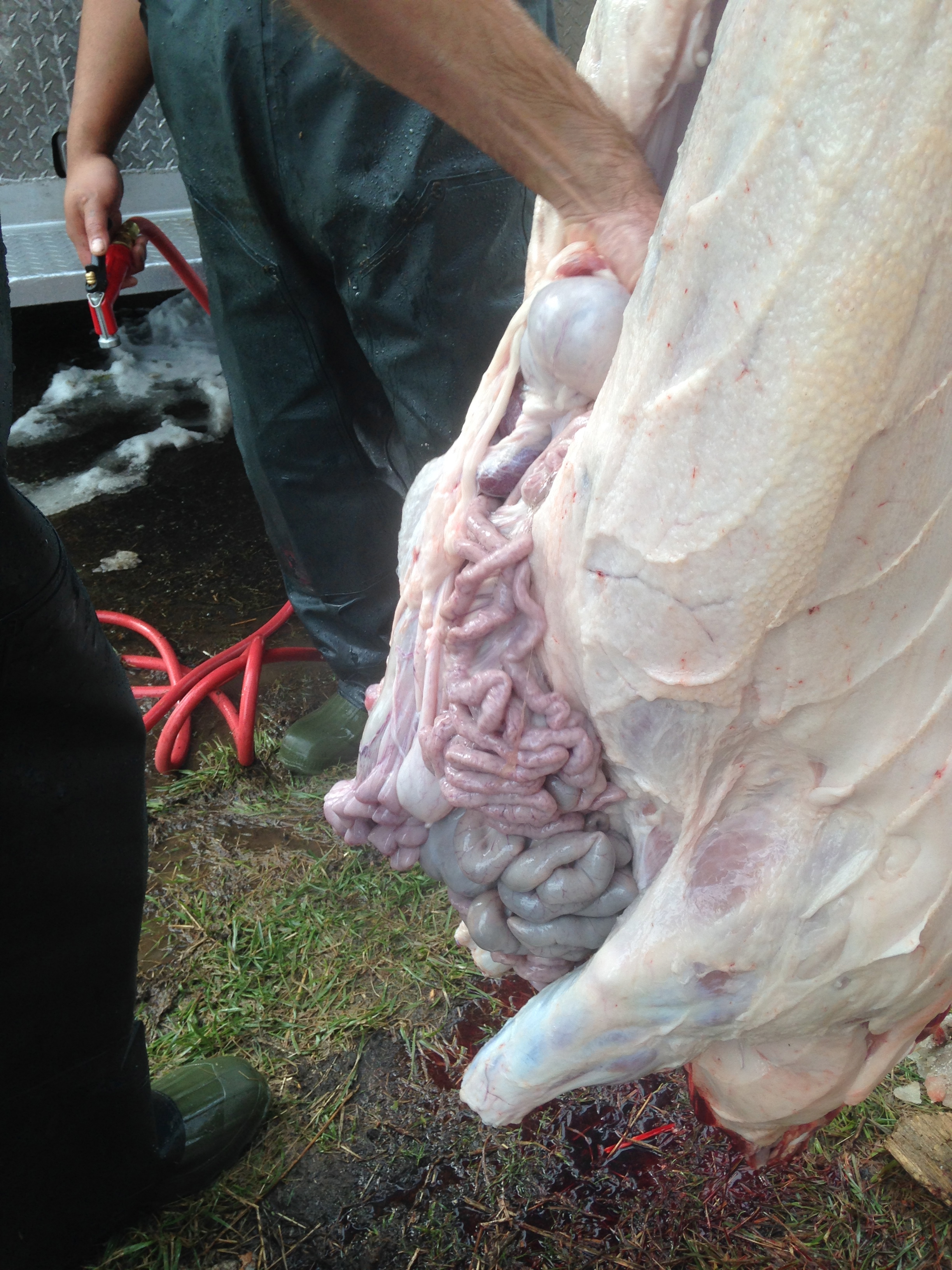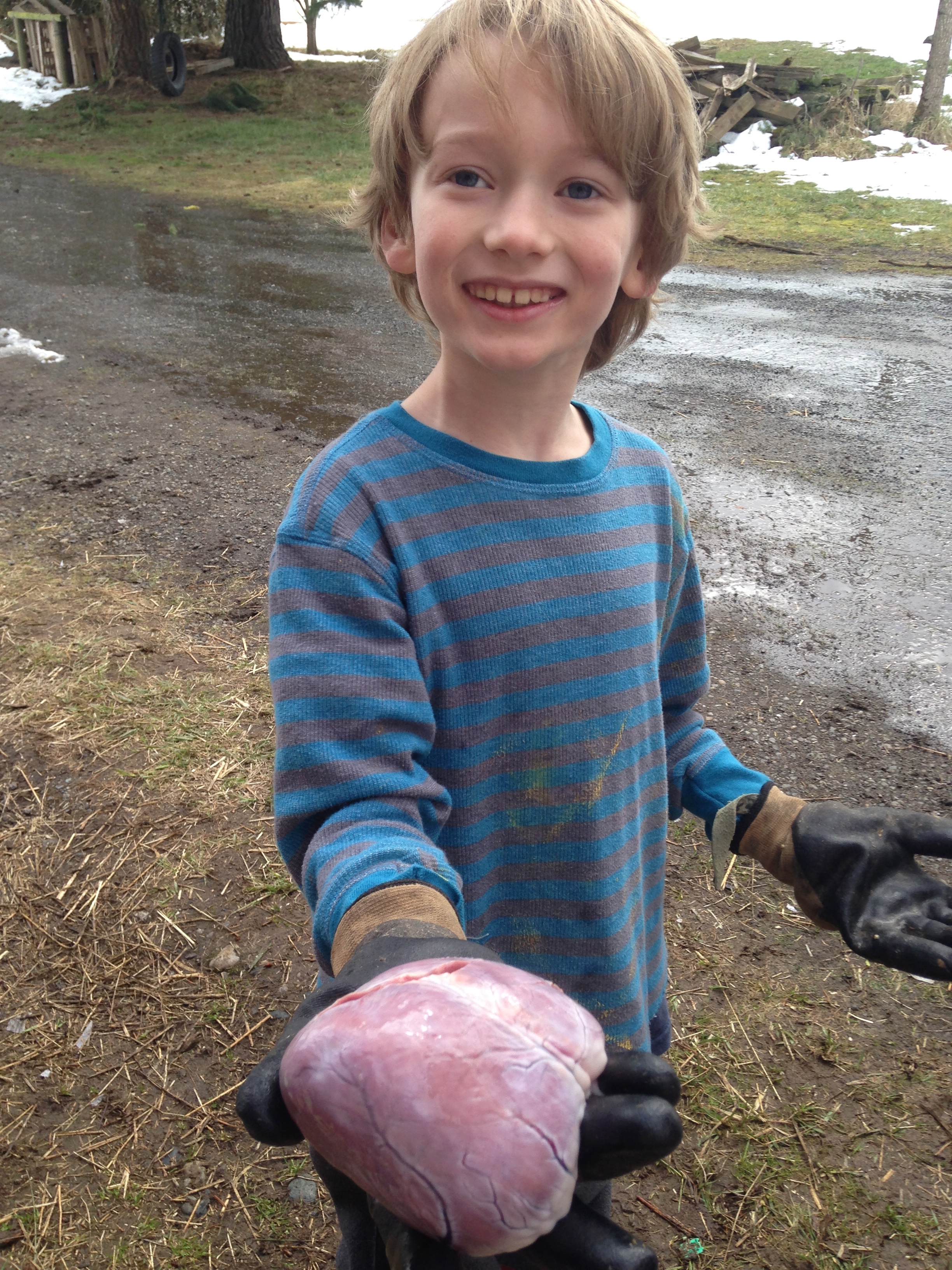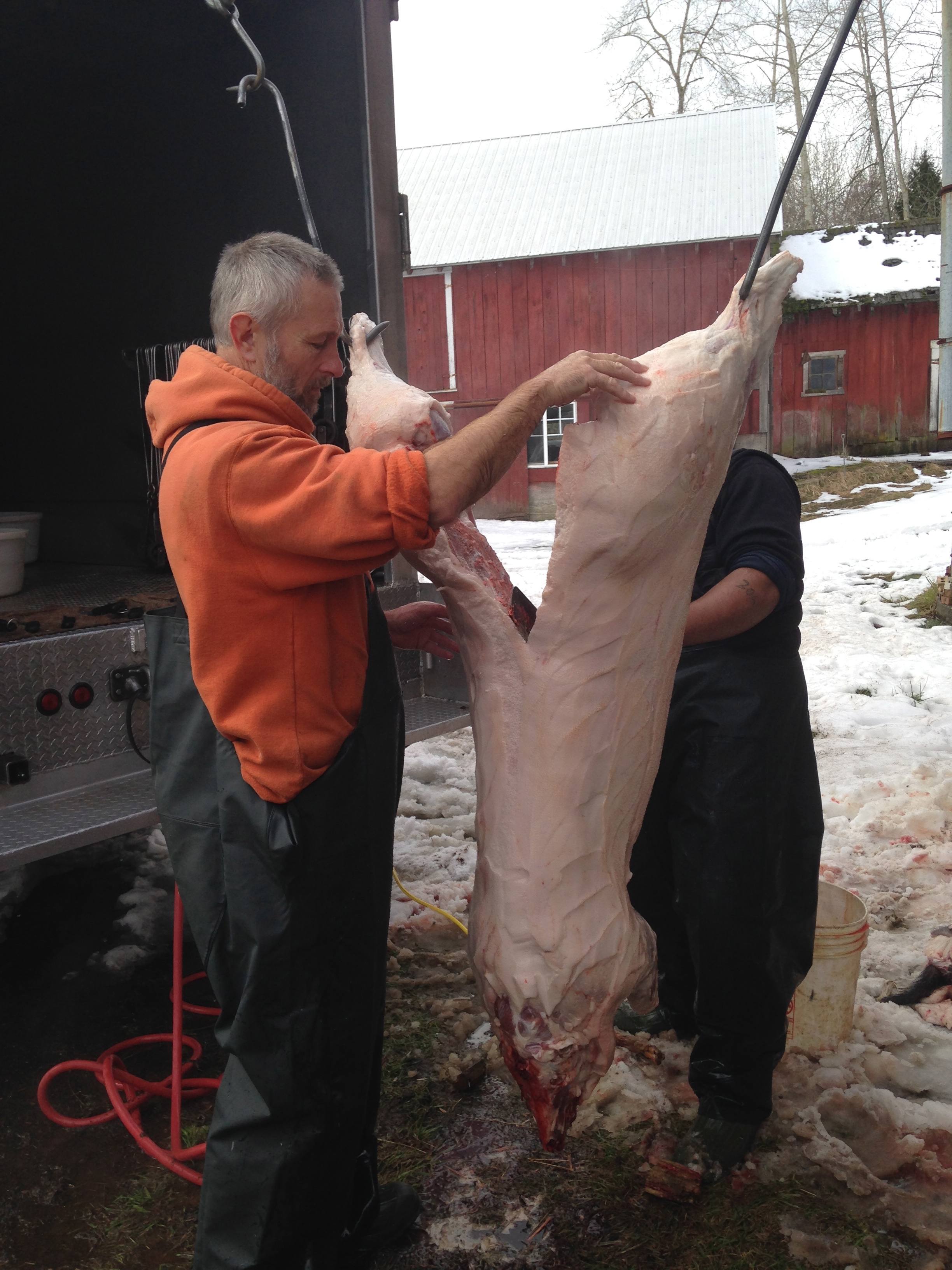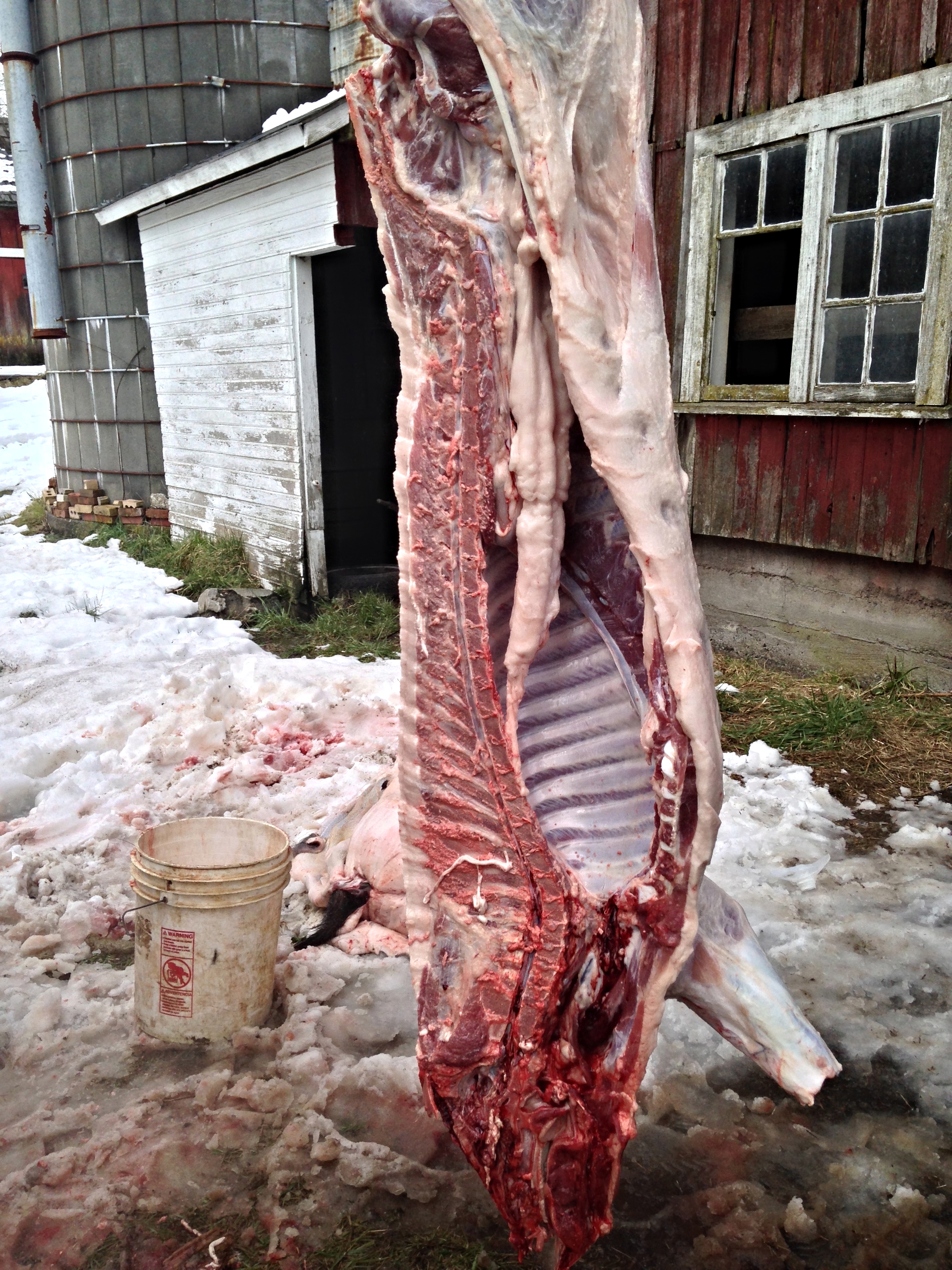Poverty is caused by bad choices. Good choices and good decisions and habits can get people back into the middle class.
That’s the most recent message of Dave Ramsey, who is a great guy apparently, and who is very good at helping middle-class people get out of debt. He is wrong about it, and, I think, a smug bastard. But he says that three things cause poverty:
1. Personal habits, choices and character;
2. Oppression by people taking advantage of the poor;
3. The myriad of problems encountered if born in a third-world economy.
And he explains why habits matter, and that rich people listen to audiobooks and poor people don't. And that rich people keep to-do lists and goals, and poor people don't. Also, rich people don't each junk food. Oh, and poor people aren't goal-oriented, and that's probably holding them back.
Except that it's all wrong, even though it’s entirely accurate.
Of course poverty is caused by personal habits and character. And of course it's caused by oppression.
But here's the thing:
Poverty has NOTHING to do with how much money you have.
Poverty is about unfairness. It’s not how much money you have in your wallet, or your bank account.
There are plenty of people with very little money who are insulated from the unfairness of poverty. They grow up without much money, but because they have parents who make good decisions, a good family, and a tight network of people, it’s not poverty. They’re not hungry. They don’t get evicted. They don’t have drugs in their life, or alcohol problems. That’s how most Americans lived for the last two centuries: Humble, hardworking, steady, without a lot of extras.
It’s not inherently bad, and it’s not what I’m talking about. People who grow up with no money, but with a network and insulation – that’s the way most of the world lives.
I’m talking about unfairness and poverty in America, where it’s not supposed to exist. I think my favorite part of Dave Ramsey’s article is this quote:
“There are others who have far more than I do. The talents and treasures on this earth are not distributed equally, and that is not fair—or is it? God has chosen to give most of you better hair than me, to make Tiger Woods a better golfer than me, to make Brad Paisley a better guitarist than me, and to make Max Lucado a better writer than me. With God’s grace, I am fine with that. I am not angry at them, and I don’t think they have done something wrong by becoming successful. As I’ve matured, I’ve come to realize that God is indeed fair, but fair does not mean equal.”
That’s the real issue here. Fairness and equality.
Poverty is this: Being told that you are equal to the people around you. Being told that if you work hard and do well, you will succeed. Believing in the American dream. Watching it work for the people around you, the people on the same playing field.
It’s about slowly realizing that the game isn’t what you thought it was. The game is rigged.
Here’s the deal: Some of the players are born with shackles on their feet. Some are visible – those are shackles of racism and bigotry that we claim don’t exist. Others are shackles that are just born there: Abuse. Neglect. Hunger. Drugs. Alcohol.
These weights, these huge manacles around the ankles, they’re invisible. And so it looks like all the kids are the same! Everyone gets a fair shot. You start out on day one learning to walk, and the world is cheering you on! The teachers, the coaches, they’re telling you to run! Go! The goal is to get as far as you can down the playing field – at the other end is success!
And the other kids who are playing believe in the game. They’re succeeding! They’ve been told that if they work hard, they can get ahead, and they have! C’mon, girl, work harder! Run faster!
They can’t figure out why you’re not keeping up with them. Clearly, you must be making the wrong choices!
But some kids are so slow, so weighed down, surrounded by chains so heavy, that you never even see them. By the time you’ve figured everything out, you’re a quarter-way down the field. And everyone tells you that you don’t have shackles on. In the US, everyone is equal. In school, everyone is treated the same. Even if you were weighted down, you’d be treated the same.
Except that really, good habits, trying harder and listening to audiobooks isn’t going to help.
Poverty isn’t about money.
Poverty is about trying to do a stupid diorama of a Beluga whale for your sixth grade science class and not having any supplies at home. So you find a shoebox from the garbage and do something on the bus. Everyone in your class has projects that look like an artist did them. You’re living in a hotel and can't even find a pen and paper. Your teacher says she’s disappointed in you.
Poverty is about the fact that 30 percent of a grade in most of your classes is homework. Your teachers expect two to three hours of homework a night if you’re going to do well. You work at a bakery every night from 4-10. You take your three sisters to school at 7 a.m. Your buddies don’t understand why you won’t join their study group. You’re just not studying hard enough.
It’s about not even bothering with homework after a while because you know you’ll be in a different school next year after you get evicted again.
It’s about always having a stomachache from worrying.
It’s about knowing that in a family with money, a divorce is a survivable tragedy. But in a family where the children are already hobbled, a divorce is a grenade you can’t run from, filled with shrapnel that leaves deep, ragged, invisible wounds. The children walk around for years, barely breathing, in constant pain, and no one can see the pools of blood that drip at their feet. The kids stop moving forward. The coaches yell, “C’mon! You can do it! Study hard!”
It’s about how none of your friends understand why the first of the month is so important, or what happens on the sixth if the rent’s not paid. It’s about none of them having even met their landlord. You have to go out and talk to him once a month, because your mom won’t.
It’s about eating pea soup every night for a week, from the same pot on the stove, while your mother cries because there’s no food. Then there’s suddenly a lot of food in the house, and you don’t care what she did to get it. And you hate your friends for having mothers who never steal.
It’s about never having enough food in the fridge. And sometimes having a ton of food in the fridge, and having a feast, and having friends over, because it’s grocery day and you feel like you can pay them back for all of the times you’ve eaten at their house, because they always have food.
It’s about having the highest PSAT score in your school, and knowing it doesn’t matter, because you’ve figured out that it’s never going to happen, this college thing. Your family needs the money you make after school. Your mother can’t do it without you. You know you’re not going anywhere. Your friends tell you you’re a slacker – why do have such awful grades if you’re so smart?
It's talking to your landlord about why you don't have the rent, and telling him that your mom is upset about the sewage on the floor in the bathroom, but he says he’s not going to bother fixing it because you're about to be evicted. Your friend complains that her life is so boring and nothing exciting ever happens to her.
It's about the goddamned black garbage bags that are your whole existence, over and over again, every time you move. You never want to see another black garbage bag or box full of clothes, ever. Your friends tell you it must be exciting to get to move so much.
It's about never, ever having a car you can trust. Or really, anything you can trust. Everything you own falls apart. Your car that you share with your mom has a bungee cord holding the hood on. Your girlfriend gets a car for her 16th birthday and complains because it’s five years old.
It’s about knowing that teeth matter. That if you need braces, the shackles will never, ever come off. And knowing that if you have a toothache, you’ll have to choose between $50 to pull the tooth and $300 to fix it. And you’re terrified that your mom might choose to pull it, because at 17, you’ve still vain enough to care, and to know that your looks are one of the things that helps lighten weights. Your friends complain about their braces while your sister cries because she can’t have them and she looks ugly with crooked teeth.
It’s about a drug dog finding something in your car while you’re in your chemistry final, and when they pull you out of class and find out it’s just a sandwich, they won’t let you retake the test. Zero tolerance. But the other kid whose car was pinged, the one whose dad’s a lawyer? He gets a makeup exam.
It’s about watching your cousin apply to college – 15 applications at $35 each!!! – and crying yourself to sleep. You moved to two states and three houses your senior year. You didn’t apply anywhere. Not even for the ones that offered you a PSAT scholarship.
It’s about your mother crying on your first day of community college, because you deserve better and she wishes she could be picking sheets out for a dorm room. And then she takes your tip money.
It’s about slowly casting off the weights that your parents gave you, and picking up speed as the load lightens, and being so, so careful not to pick up more. No drugs. No cigarettes. No alcohol, real relationships or talk about the future. Not until you’ve caught up. The load lightens. You can see a way clear. This is not permanent, not for you. You WILL move ahead.
It's about wishing you could help your sisters lighten their load, and knowing there's nothing you can do until you learn to manage yours better. You let your sister borrow your ID and Social Security card so she can start work at 14. Maybe she'll have better habits and choices than you did.
It’s about dating a guy for two years because he has a truck and you’re sick of walking to work in the snow, and he goes to the same community college you do. So you have a ride to work and to school. Funny, though – your friends who have money, they date for love.
It’s about knowing that the only ways out for you are education or marrying someone. When someone offers to help with school if you change your major, you jump at the chance. Follow your dreams and take eight years to pay for it yourself, or get a degree you’re not interested in and it only takes two? Sure, you’ll sell out. No problem. Who thinks you can make money in archeology, anyway? Clearly, journalism’s where the future is.
It’s about graduating with honors, and when your family comes (your mom’s in jail and can’t make it,) they ask why you don’t have the honors sash. You tell them you couldn’t afford the $26, and they say they would have helped with it, and you’re so surprised you don’t know what to say. Five years of waiting tables at Pizza Hut to get a two-year degree, and this is the help they want to give. A sash to walk across the stage. Huh.
It’s about having friends who work at topless clubs and make $800 a night, and you wish you had the guts and the body to do it. And hearing about how exciting it is that your cousin who went off to college when you did just started law school.
It’s about having your water turned off, and then you need a deposit to turn it back on, so you get a hose, attach it to your neighbor’s house and wash dishes with that for a month. And shower like that, too. Your friends want you do go on a ski trip with them to their parent’s condo in Vail, and don’t understand why you never want to have fun.
It’s about knowing that while you’re showering with a hose, the cousin who went to college the same time you did is now done with law school and is now on a rowing team, competing for the world record. Once in Argentina. Once in Scotland. A family member takes you to Europe to go watch. It’s the first time you’ve been overseas. Your cousin has rowed in 25 countries, lived in Ireland, and has three gold medals. Her mom asks why it’s taking you so long to finish college. Maybe you're not making good choices, she says. You can try to work harder. Like her daughter.
It's about how you can always scrape up $3 for Funyons and Diet Coke from your tips every day, but you can’t scrape up the $87 to turn on the gas at the house to cook. Your family wants to know why you don't eat better.
It’s about watching other cousins get cars when they turn 16, watching them be loved and cherished and taken care of, watching them turn in applications for college, and wondering where you’d be on the playing field if you hadn’t been hobbled. And feeling guilty, because you know that everyone has the same opportunities, and that if you'd just worked harder and made better choices, you'd have done better, too.
It’s about needing $200 to fix your car or lose your job, and knowing that borrowing the money comes with a lecture, and swallowing your pride, and if they ask, “why can’t you take the bus?” while they spent more than that for their purse and this is life and death to you, you need to shut up and be glad they’re around to lend it to you and be grateful. Because you know not everyone has someone to lend them the money.
It’s about believing in doing what’s right, and still using white privilege, the crying girl privilege, boob privilege, whatever it takes to get out of a ticket, because that $200 will be the end of you.
It’s about trying to get rid of the weights, and knowing that you can’t help anyone else who’s stumbling. Not yet. You can barely figure it out yourself. And yet you see so many people you love just stop trying. They sit down, stuck where they are, and they develop weights of their own that will never be shed. A baby. A bad relationship. Their own drugs or alcohol problem.
It’s about recognizing people who get it. About being able to tell at a glance who’s fighting along side you, and picking up travel companions. You want someone who’s learned to pick up their weights and sprint alongside you, not someone who complains about how heavy it is. Someone who will shake their head with you as you both pass someone who was born unshackled, but who has now weighted themselves down. You and your travel companions, you can share the loads and speed up the trip. The going gets easier, for the first time.
It’s about watching your sister go to jail for years because she couldn’t take one more step with weights on. Her load never lightened. She got more shackles of her own. She had a son, and you watched him learn how to walk with shackles on his feet, and you wished to God that you could remove them from that poor little blonde toddler.
It’s about seeing your fierce, beautiful blonde sister with a hole in her leg from where the spider bite went septic and the prison guards wouldn’t let her see a doctor.
It’s about seeing people you love who were born free make bad decisions and be insulated from them. They make some of the same choices you made, and they bounce back. Traffic tickets, bad teeth, mouthing off to a cop – these things miraculously go away when there’s money. When there’s no shackles.
Slowly, slowly, the weights drop off, one by one. And because you’re made stronger by carrying those weights, you can move fast. You’re nimble, you’re smart, and you catch up.
Hell, you even blend in with other people, the ones who never had weights! You even marry one, and have kids. And your kids are born free, and at some point, you even manage to run over and find your sister’s kid on the playing field, and you do your best to take as many weights off him as you can.
They were right! You can do it! Once you get rid of the weights, you can go as far as you want!
But the scars are still there.
They’re there when I look in the fridge.
You know what I see in the fridge, full of good food? The possibility that tomorrow it will be empty, and I'll be unable to feed my kids. I have months and months worth of dried beans in my pantry, because I know how long you can survive on pea soup.
Poverty is having a pantry full of food, a fridge full of food, and a bank account with money in it, and still being aware every single minute that it could all be gone tomorrow.
It’s asking my husband, who has been by my side, steadfast and stable, for 17 years, "Are you going to leave me?" because I have to ask, because I know what divorce does to children.
It's waking up with nightmares that I have to tell my son that he has to give away his cats because the landlord won't allow pets, and waking up sobbing until I remember that we own this home and we're safe.
It’s being involved in my children’s education so that I know they are prepared for this world. It’s seeing police officers and wanting to hide, and being afraid that CPS will come take away my kids, even though I’ve done nothing wrong.
It’s the moment of panic when the gas light goes on in my car, until I remember that I now have money to fill up the tank.
It’s reading this woman’s excuses for why poor people make bad decisions, and understanding every one of them, and knowing that she’s right, but it’s not the whole story.
Fair does not mean equal, Dave Ramsey says. I’m sorry, but he’s a sick bastard if he really thinks being bald is the same thing as being born into a family where there are drugs and mental illness and abuse. Bald is not a life sentence to poverty. Being a bad golfer is not a shackle. I don’t think he understands a thing about what it’s really like to be poor.
What you need, he says, is to have better choices, have better habits, and to grow your character.
No. What you really need is help. A coach who can see the shackles, and who can explain them to you, and who can lift them for a bit while you gain strength. Someone to make sure you understand how the game is played, so you don’t add more weights to yourself.
You need an aunt. A friend, a teacher, a mentor, an uncle who went to a good college and can help you with the application. Someone who knows how to help.
One person who will say, “Here, take my hand. I’ll help you. You really can do this. Even if it’s hard, and even if I can’t take away your burden, I can help carry it with you for a while.” I paid for college, with student loans I’m still paying off, eighteen years later. $167 a month, every month, since 1995.
But when I was in college, my aunt would bring bags full of treats: New sheets for my bed in my dorm room, candy, groceries that my roommate and I could cook in the microwave. New underwear. She’d pay for the dentist, so I didn’t have to have teeth pulled. A nice haircut once in a while, instead of Supercuts. She'd take my roommate and me to Costco and we'd spend $200!! We lived like royalty. And then, when we got back to the dorm, she'd give us each a $20 bill, with the warning not to spend it all on beer.
She was the difference between making it and not making it.
One person can make a difference. One loan, to get a car fixed so someone can get to work. Even better, one gift to the car fixed. One trip to the dentist. One trip to the grocery store the week before Christmas, so the Christmas bonus can be spent on bills instead of gifts, and the whole family can catch their breath.
Anyone who says that there is an even playing field is wildly ignorant and stubbornly, willfully blind.
These are the things that help: Medical care, mental health care, counseling. Food stamps. Housing. A school system that doesn’t penalize kids for not being able to do homework. A school system that doesn’t reward kids for having parents who help. Teachers who care about students and not grades. A kind word, said at the right time.
These are things that don’t: Guilt. Shame. Being told to work harder. Being told that it’s your fault. Being told that setting goals is the answer. All of the to-do lists in the world weren’t going to help my journey. Being goal-oriented wasn’t going to help, either. And I listened to plenty of audiobooks, but I don’t think that was what saved me.
What got me out was being willing to take the help that was offered. Sometimes it’s hard to take help when it comes from people who don’t understand. They know so little of the real world, even though they run it. But if you want to know how to function in their world, you have to befriend them instead of blaming them. It goes both ways. It’s not their fault they were born free.
I have three sisters. Two of us are out, unshackled and walking freely. One is still struggling, but is learning to lighten her load. Another gave up a long time ago. I still have hope for her. She’s been given help but can’t see her way anymore.
I have a farmhouse now, out in the country. I have apple trees, and chickens and pigs, and a husband who doesn’t understand me even a little bit and who adores me anyway. I have three children, and they are thriving. I make them do chores. They make me laugh. They ask, when the apple tree is ripe, why I have to use every apple. Why I have to make 68 quarts of applesauce, why I have to donate the rest to the food bank. Why can’t I just leave the apples to rot, the way the neighbors do?
Because it’s a shame to waste food, I reply, while there are children out there tonight who are going to bed hungry.
















